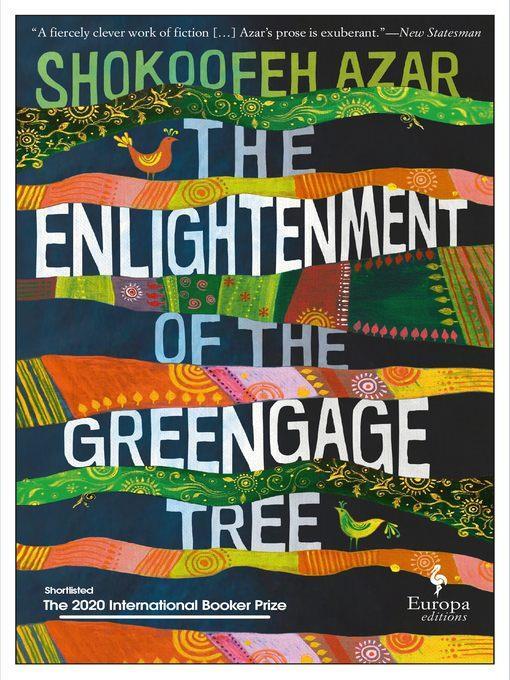
The Enlightenment of the Greengage Tree
A Novel
کتاب های مرتبط
- اطلاعات
- نقد و بررسی
- دیدگاه کاربران
نقد و بررسی

November 25, 2019
This challenging debut by Iranian writer Azar, forced to flee to Australia in 2011, tells in dreams and fantasies the story of one family during and after the Islamic Revolution, which overtook the country in the last quarter of the 20th century. Thirteen-year-old Bahar narrates from beyond the grave, weaving a phantasmagorical tale that follows her father, Hushang, as he leads his family away from Tehran and their old ways, abandoning rugs and books and intellectual pursuits deemed dangerous by the new Islamic regime, to the small town of Razan, where he hopes to protect them. Propelled by fairy tales of jinn and the dead, the novel meanders from Bahar’s own death in a fire set by Islamic thugs to the disappearance, torture, and death of her brother, Sohrab, through the mental struggles of Bahar’s mother, who climbs greengage plum trees, and beautiful sister Beeta, who turns into a mermaid. Azar’s florid style emulates the rich storytelling tradition of bygone Persia, redolent with Zoroastrian lore and mired in magical vegetation “containing a thousand memories,” clearly meant as a bulwark against the oppression of the present day regime. But the promise of the voice is weighed down by clunky writing, rife with repeated and awkward phrasings. Azar’s dense family saga is animated by characters who face terror heroically, but it’s undercut by the unpolished prose.

Starred review from November 15, 2019
Although the page facing the title of Azar's first novel to be translated into English clearly states, Translated from the Farsi, the linguistic enabler remains anonymous; the publisher's official line is, the translator of this book has asked not to be named out of fears for his/her safety. Author Azar is no stranger to danger, having escaped to Australia as a political refugee in 2011. Her fiction rings too true, bearing witness to the heinous atrocities suffered by bewildered everyday citizens in Iran after the 1979 Islamic Revolution that overthrew the monarchy and installed Ayatollah Khomeini's brutal regime. The titular, albeit mournfully ironic, enlightenment happens to Mom at 2:35 p.m. on August 18, 1988, atop the greengage plum tree at the exact moment when her son, Sohrab, is hanged without trial and his body is about to be dumped into a mass grave with hundreds of victims of the same injustice. Sohrab is her second murdered child, the first having been Bahar, burned alive at 13, whose death doesn't prevent her from existing among and communicating with the living. The future of the family's surviving child, Beeta, remains threatened. Despite the relentless tragedy, Azar's narrative exudes fairy tale charm driven by moments of deep connection that ultimately celebrate human and humane bonds unbroken even in death.(Reprinted with permission of Booklist, copyright 2019, American Library Association.)

























دیدگاه کاربران